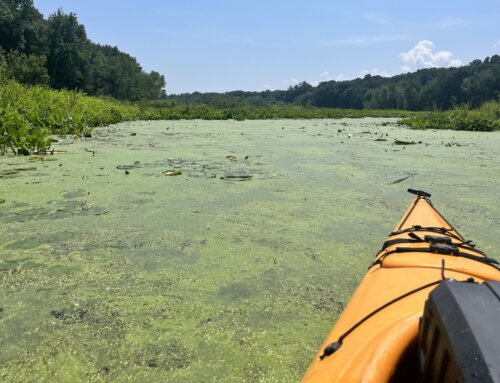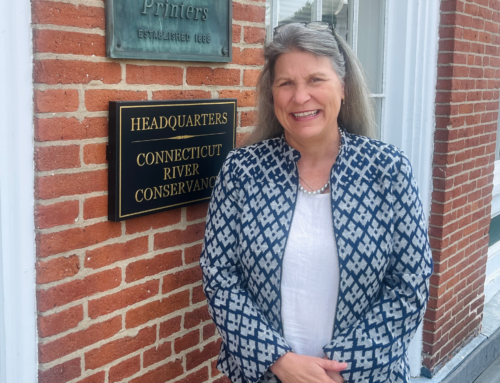FOR IMMEDIATE RELEASE
Saxtons River, VT. March 21, 2011. – The Vermont Yankee nuclear power plant, which sits on the banks of the Connecticut River, has been operating under the terms of a discharge permit that expired five years ago. That’s about to change according to the Vermont Agency of Natural Resources (ANR), which announced that it will review the discharge permit for the plant. The move is in response to a petition filed by the Connecticut River Watershed Council (CRC) that petitioned ANR to conduct the review in order to protect the Connecticut River from the thermal discharge from the plant.
“The discharge has kept going on while we waited for ANR to take this step. Opening the permit for review will allow us a chance to challenge the permit if it continues to allow the flow of the Connecticut River to be raised 5 degrees for an unknown distance down river,” said David Deen, river steward for CRC.
Deen went on to say, “CRC has been a leader in holding Entergy Vermont Yankee accountable for its thermal pollution. Once this permit is issued, we will carefully review it to ensure that Entergy Vermont Yankee is held accountable for the effects this temperature increase has on the aquatic life in the river, especially American shad. If the permit does not protect the Connecticut River, we will appeal.”
The petition was filed in February on behalf of CRC by the Vermont Law School Environment and Natural Resources Law Clinic. The Clinic’s staff attorney Laura Murphy was the lead attorney filing the petition.
“The current permit is outdated,” said ENRLC staff attorney Laura Murphy. “It is time for ANR to revisit this permit and conduct a full review. We are glad they have decided to do so”
The petition asks the agency to require Vermont Yankee to operate its closed-cycle cooling towers to reduce thermal impacts as well as reduce fish mortalities from the intake structure. ANR has not announced yet the schedule for the issuance of the permit. The Watershed Council also asks the ANR to open up Vermont Yankee’s environmental advisory committee to public input and scrutiny. The ANR established the committee to give advice on environmental monitoring and standards for the plant.
“For too long this committee has conducted business behind closed doors. It’s time to let a little sunshine into the room,” said Pat Parenteau, senior counsel of the ENRLC. Parenteau added, “ANR should move quickly to issue a new permit that brings Vermont Yankee into compliance with the Clean Water Act and ends the practice of using the Connecticut River as a waste receptacle.”
Deen concluded, “This permit is called a ‘zombie’ permit in that it has continued on past its 2006 expiration date because the agency had not processed the permit renewal application. The Connecticut River has provided an environmental subsidy to Entergy VY profits long enough.”
-Endit-
About CRC: For over 50 years, CRC has worked in partnership with people to protect the Connecticut River watershed from source to sea. Accomplishments include helping to restore access to spawning areas for migratory fish, protecting over 8,000 acres through our Land Conservancy Program, and supporting three full-time River Stewards who bring CRC’s on-river presence to every region of the watershed, taking action and assisting community groups. Learn more at ctriver.org.
About ENRLC: The Environmental and Natural Resources Law Clinic at the Vermont Law School provides an experiential learning opportunity for students. The ENRLC mission is to provide a high-quality, skills-based educational experience for law students who learn how to become competent, ethical attorneys with expertise in the field of environmental and natural resources law; provide pro bono representation for individuals and organizations who could not otherwise afford legal services.
Contacts:
David L. Deen River Steward, 802-869-2792 ddeen@ctriver.org
Laura Murphy, 914-260-6045 lmurphy@vermontlaw.edu
Pat Parenteau, 802-831-1305 pparenteau@vermontlaw.edu







